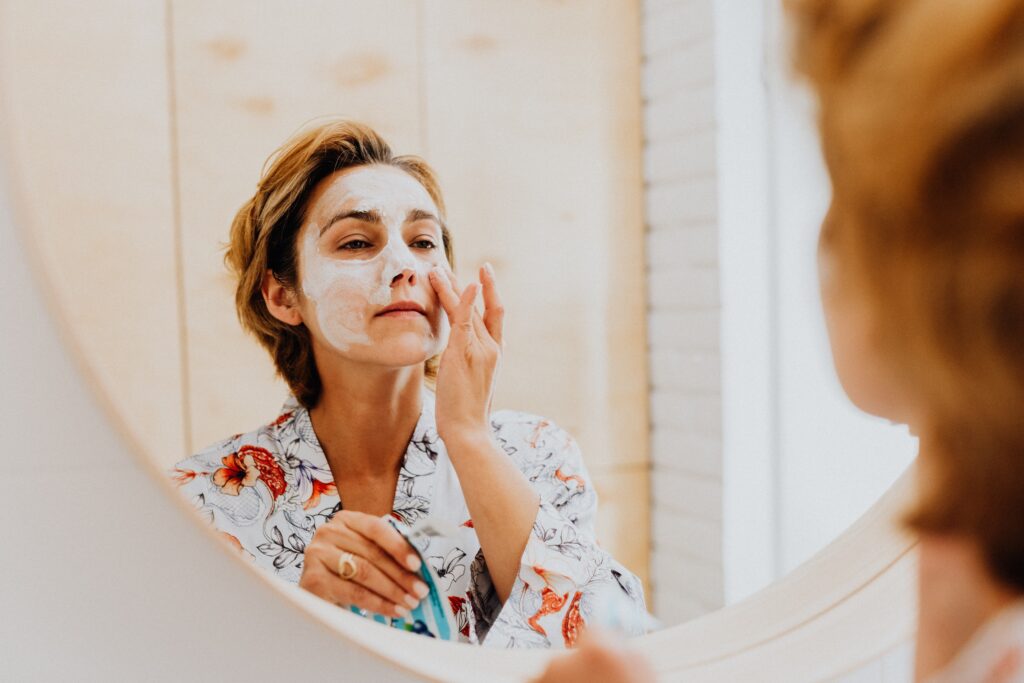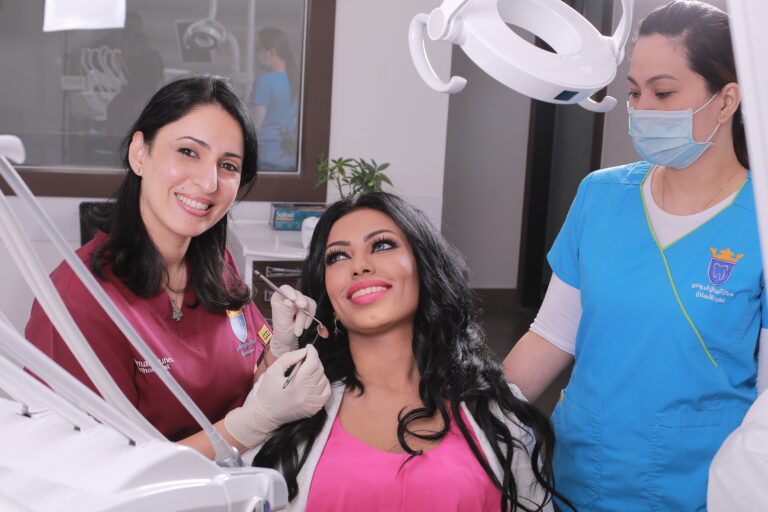Introduction:
Dermatologist skin care tips usually recommend a customized skincare routine based on individual skin type and atmosphere. There are a few things that are generally included in the recommendations of a skincare specialist, i.e. Sunscreen also known as sunblock is an absolute essential, with dermatologists advising a broad-spectrum product with at least SPF 30 to protect against UV damage.
It places a protective layer on the face to setback the dangerous sunlight rays. The other typical thing includes a gentle cleanser to remove impurities, followed by a moisturizer tailored to your specific needs, whether you have dry, oily, or sensitive skin.
Moreover, dermatologists also suggest exfoliating 1-2 times a week to remove dead skin cells, along with antioxidant-rich serums containing ingredients like vitamin C to fight free radicals. Regular check-ups with a dermatologist are essential for monitoring any persistent skin issues.
Aside from product recommendations, dermatologist skin care tips emphasize the importance of a comprehensive approach to skincare. This includes eating a balanced diet rich in fruits and vegetables, staying well-hydrated, getting enough sleep, and managing stress effectively, as these factors significantly impact skin health and overall well-being.
Dermatologist Skin Care Tips: 14 Amazing Points

Dermatologist skin care tips offer personalized advice and treatments based on your unique skin type and concerns. Consulting a dermatologist ensures that you receive personalized guidance and treatments designed to address your skin challenges and keep overall skin health as well.
Here are some general skincare tips you might receive from a dermatologist include:
1. Know Your Skin Type
A dermatologist can help you understand your skin type, whether it’s oily, dry, sensitive, or a combination. This knowledge is crucial for choosing the right products and treatments. Because one product is beneficial for one skin type, may not be suitable for another type. So it is very important to choose any product or remedy for your skin when you get sure about your specific skin type.
2. Customized Skincare Routine
Dermatologist skin care tips can help you create a personalized skincare routine that identifies your specific needs and concerns, such as acne, hyperpigmentation, or aging. It can be customized in such a way that if your dermatologist recommends a list of skincare products may not be satisfactory to you because of some hidden reasons like weather changes or some allergies etc. In this case, under the same formulas, you can have more options to go only with the permission of your skin doctor.
3. Sun Protection

Dermatologists emphasize the importance of sun protection. Sunscreen helps prevent sunburn, skin cancer, and premature aging. They may recommend a broad-spectrum sunscreen with an appropriate SPF level and advise you on proper application before going out in a day. It helps you not only to make your skin protected but also to make it more shining and glowing.
4. Prescription Medications
For certain skin conditions, dermatologist skin care tips may prescribe topical or oral medications, such as antibiotics, or hormonal treatments. Because an internal disease cannot be cured in only a cosmetically way.
A healthy inside ensures a healthy outside appearance. So some multivitamins and proper medications are a better way to make your skin texture stronger and healthier.
5. Professional Treatments
Dermatologists can provide a range of in-office treatments, including chemical peels, microdermabrasion, laser therapy, and injections like Botox or fillers. There are non-surgical skin treatments that work to smooth your skin, even out your skin tone, and prevent further acne, scars, and fine lines.
It depends on the treatment of your choice what you are looking to improve, how long you want the treatment to last, how much recovery time you can take, etc.
6. Regular Checkups

Regularly scheduled visits to your dermatologist skin care tips can help monitor and treat any skin issues or changing skin conditions before they become more serious. The frequent checkup makes you more concerned and aware of your skincare treatments and if there’s any further medical care required it can be done on the spot.
7. Acne Management
If you have acne, a dermatologist can provide guidelines on effective treatments and strategies to minimize scarring and reduce breakouts. Skincare for acne medications work by reducing swelling, and oil production, or by treating bacterial infection.
With most prescription acne medicines, you may not see results for four to eight weeks. It can take many months or years for your acne to clear up completely. So a consistent approach towards skin care in this case is indispensable.
8. Scar Management
For scars from acne, surgery, or injuries, dermatologists can recommend treatments like micro-needling, laser therapy, or silicone gels to reduce their appearance.
Dermatologist skin care tips suggest that the application of a triple antibiotic ointment i.e. over-the-counter Bacitracin, Neosporin, or Polypore three times a day for almost three weeks helps you to prevent infection and creates a better foundation for improved long-term scar appearance.
9. Anti-Aging Solutions

Dermatologists can provide options for reducing signs of aging, such as wrinkles and fine lines, including recommendations for skincare products and treatments like Botox or dermal fillers.
According to a dermatologist skin care tips, higher intakes of Vitamin C along with linoleic acid help you to the prevention of creepy skin and a better skin-aging appearance. Protects the skin and repairs and regenerates tissues. In addition, vitamin C, vitamin E, and raspberry leaf extract have an anti-aging effect.
10. Customized Product Recommendations
A dermatologist can recommend specific skincare products tailored to your skin type and concerns. They may also suggest products with active ingredients like Vitamin D is the best vitamin for your skin to make its texture thicker, when you use it along with vitamins C, E, and K, it gives you such a result that you have never gotten.
11. Topical Medications
Dermatologist skin care tips prescribe topical medication that consists of gels or creams containing azelaic acid, brimonidine, or metronidazole, which helps you to reduce inflammation and redness. If you need to have topical conditions to cure like eczema or rosacea, a dermatologist can help you manage symptoms and recommend appropriate treatments.
12. Skin Cancer Screening
Dermatologists are experts in identifying and treating skin cancer. The skin cancer symptoms include new bumps or patches on your skin, or changes in the size, shape, or color of skin growths.
Most skin cancer is treatable if it’s caught early. Its treatments include cryotherapy, Mohs surgery, chemotherapy, and radiation. Apart from that you can also perform regular skin checks and advise on preventive measures.
13. Lifestyle and Diet

Dermatologists may guide how diet and lifestyle choices, such as useful nutrition can impact your skin’s health. Eating foods high in glutamine including chicken, fish, cabbage, spinach, dairy foods, tofu, lentils, and beans can play an important role in making the skin healthier and smoother.
A balanced and healthy food gives you nourishment that provides your body with good vitamins, minerals, and adequate water per day to promote better skin health.
14. Stress Control
Stress management plays a vital role in making your skin healthy and glowing. Chronic stress can impact your skin. That’s why seeking help from a dermatologist is highly recommended.
It leads to stress-reduction techniques that help you to maintain clear and healthy skin. Because, the stress not only affects your immune system but also causes detrimental skin problems like acne, marks, pimples, dry skin, wrinkles, fine lines, etc.
Conclusion:
To sum up, mind that following dermatologist skin care tips and treatment plans is essential for achieving and maintaining healthy skin. Dermatologists are experts in their field and can provide personalized recommendations based on your specific skin type and concerns. You can communicate with the doctor if there are any changes in your skin’s condition or concerns during your follow-up appointments.
Dermatologist skin care tips can guide you in selecting the right products and routines, ensuring that you maximize the benefits of your skincare regimen. Don’t forget that, disregarding dermatologist instructions may lead to suboptimal results and potential harm, making it vital to follow their professional guidance for optimal skin care. Dermatologist Skin Care Tips






